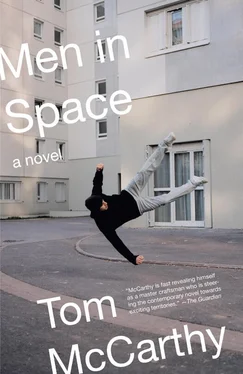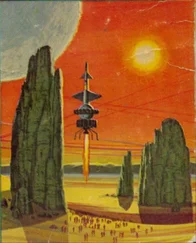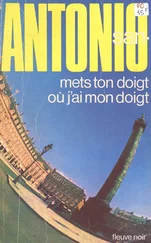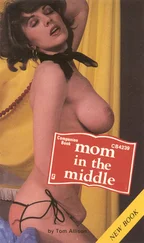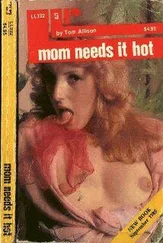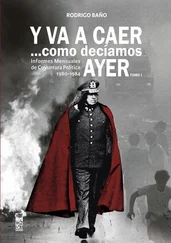“You can’t do that,” the man serving says.
“Do what?”
“This isn’t where you leave your glass. You have to drink it at the tables. Those are the rules.”
“The rules have no interest … I don’t interest myself towards … For me, the rules …” This is infuriating: his Czech grammar’s not up to the exchange. Nick shrugs exaggeratedly and walks away. His glass is unretracted: that’s a victory. Behind his back the old man snarls, American cunt … Nick half-turns round again and thinks of going back to put him right on the point of his nationality, but decides not to: quit while you’re ahead …
There’s a space at the shelf-like counter that runs the length of the window. No chairs, you have to stand, but you’re right up against the glass and can look out on the street. Nick likes doing this: looking, wide-eyed, like a child. That’s why he likes art, why he studied it, why he applied for a job writing about it — there’s no other reason. He breaks the věneček ; pus-like custard oozes out onto the saucer. He dunks the severed segment in his coffee, tucks it into his mouth and watches the street. Trams, cars, people, pigeons. The trams ring their bells and shave sparks that drop like cherry blossom from the wires overhead, their undercarriages jolting as they clank round the corners branching off from Anděl and disappear down streets lined with ornate but dilapidated tenements, past shops, babies in pushchairs, dogs, babičky . People stream by, heading to and from the metro. Nick dips his hand into his pocket, pulls out a piece of paper and reads:
“ Dear sir or madam, your help is what I’m sicking for. Because my children have been taken from me … ”
Seeking, sicking. Looking up at the window’s glass, Nick recalls his dream: A gaping symphony … Urania, Estania … Sounds like a place the boats were all heading towards. Or a planet. There were those shapes around the figure on the playing card, blocks of dark matter. It vexes him that he can’t remember the exact phrase: it seemed to hold some kind of key, words that would have made it all seem clear if only he had understood them. They came from speakers, mounted like the speakers that they’re slowly taking down from every street in Prague. He can see a row of them right now, strung up beside the tramlines: must have been for warning of impending nuclear war, announcing news of increased import-export surpluses, national sporting victories … Sliding along the street towards his window, growing larger, is the twelve: his tram, goes right up to the Exhibition Park and AVU. Nick sinks the tail end of his věneček in coffee and leaves the automat.
He boards the second carriage and heads straight for the back. It’s the worst place to be, because his pass is out of date and the plain-clothes inspectors, when they come, move from the back of the tram to the front — but he loves riding the wake, leaning on the rail against the window watching the tracks appear from underneath as though the tram itself were ploughing them, churning them up while the box on its roof trailed cable like a spider spinning thread above: making the world by moving through it. At Strossmayerovo Náměstí he sees Mladen, a Yugoslavian ex-flatmate of his, crossing the tracks. Mladen sees him too; they wave at one another. After Mladen’s dwindled away Nick slips the paper from his pocket again and reads:
“ … since then I have liaise with ISS, United Nations Highs Commission Refugees, International Organization for Migrations, but these bodies don’t agree to help. Therefore … ”
Výstaviště here: Nick jumps off. In front of the Exhibition Park’s tall wrought-iron gates a giant King Kong stands frozen, fibreglass fur coated in a dustlike sheen of frost. His lips, curled back to show his fangs, seem to have stuck, as though caught by a wind change; his arms are raised, claws pointed at the small twin-seated aeroplanes suspended in a circle round his head. Nick stood on this spot in the summer with his neighbour Anton, watching kids ride these planes as they looped around the gorilla, moving up and down in a kind of elastic orbit. The planes are all still now. No kids: too cold. Poor woman. Nick walks to the edge of Stromovka and turns right, down the path that leads to the front door of AVU.
“Yes?”
He gets this every day, as soon as he steps into the tiled hallway: the old vrátná , creeping in her slippers and her plastic apron from her alcove to intercept him. Nick stops and turns to face her:
“I work here.” Like she doesn’t know.
She wrinkles her nose, turns and retreats towards a table on which coffee and an open magazine are sitting. Troll. Nick strides into the main lobby, where he finds most of the students lounging around tables. Some of them are smoking Spartas; some of them are breakfasting on slices of tlačenka — Braque-like montages of pig in which fragments of flesh, hoof, brain and tail are held together by a frame of jelly. Some of them are doing both, eating and smoking simultaneously, stubbing the Spartas on their plates. Jirka’s the first to notice him; he looks up for a second blankly from his book, then looks down again. Marek sees him next; he throws him arms out.
“ Nicku .”
Nee-koo : the vocative, no less. All nouns decline here, bifurcate within each case according to whether they’re animate or inanimate, bifurcate again depending on their final syllable (hard or soft), then trifurcate from there along lines of gender, m/f/n. That’s six times two, equals twelve, times two, equals twenty-four times … Impossible to remember is what it is, all these inflections. He’s got his own name down, though. In the ablative it becomes Nickem — a thieves’ credo; in the dative it’s Nickovi , which always makes him think of the V shape of girls’ knickers. Can’t think of that now, though, not before … Marek’s holding his finger up, preparing to say something.
“ ‘Papa won’t leave you Henry!’ ”
Nick joins him; they reel off the second line in sync:
“ ‘Papa won’t leave you boy!’ ”
“ Yes! ” That’s about the extent of Marek’s English — that and other Nick Cave lyrics. He’s got a Cave obsession: he’s grown his hair down to his shoulders and dyed it black, wears white shirts beneath black jackets every day — same shirt, same jacket, judging by the way they’re always creased and ruffled. Eighteen, and the best student in Kolář’s class by miles. Kolář doesn’t seem to be here right now; neither does Dana. Nick sits down, knocks a Marlboro from the packet in his pocket and sticks it in his mouth. Marek, purring, vowels extended into chants, begs him for one. Karolina, sitting next to him, hesitantly follows suit. Marek flips a silver lighter open, sparks all three up, then leans back and draws on his one, moulds his lips into an O and works his lower jaw up and down like a fish so that his mouth expels three perfect smoke rings. Nick and Karolina watch them float over plates and cups and break on the spine of Jirka’s book. Jirka waves the smoke off with his hand and carries on reading: a textbook on figure drawing. No chance: if he looked up, watched the way the smoke is rushing round the cover, spilling up away from it, gathering shape so it can lose it all again, he might learn something …
“Hey Nicku!” Here’s Gábina, carrying her portfolio round the corner from the main hall. Tights, grey skirt, red headband. She was wearing the headband when they first met: the height of summer, August or July, a retrospective of situationism at the Mánes Gallery — or outside it, rather, as you couldn’t get near the door for all the crowds. Staropramen, who were sponsoring the show, had dispatched from their brewery not half a mile away a tanker truck of beer which was standing ruminating, head down, in the middle of the street outside the gallery while servers filled glass after glass from faucets dotted round its underbelly and handed these out, free, to anyone who wanted them — hence the crowds. The whole area had come to a standstill: pyramids of foam-capped glasses rose above the cobblestones, seven or eight feet tall; people stumbled, danced and swayed around these. On the gallery’s roof a jazz band was playing. After they’d done two or three numbers a helicopter appeared from over Smíchov and hovered low above them; the band, for their part, carried on, unfazed. A rope was lowered from the helicopter’s side; the bassist clipped this to his chair and, still holding his instrument, was lifted up and flown dangling away towards the castle: a pre-planned stunt. It was while he fiddled with his harness prior to lift-off and the chopper hovered, wind from its propellers toppling the pyramids and whipping up a storm of dust and broken glass and beer, that Gábina was blown into Nick.
Читать дальше
